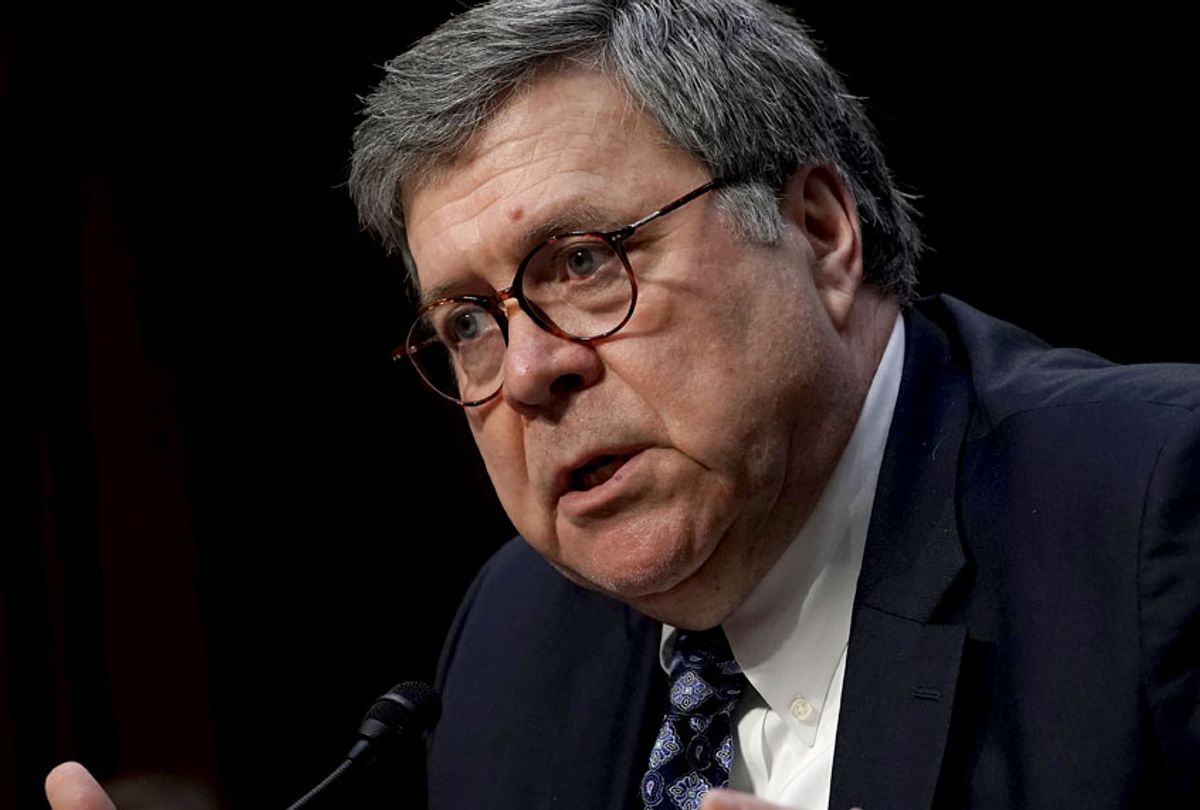Several Cabinet department heads in the Trump administration have fought against efforts of congressional oversight in recent weeks. Perhaps none have been so brazen, or so seemingly corrupt, as Attorney General William Barr’s latest move to avoid scrutiny.
On Tuesday, House Democrats passed a civil enforcement resolution that effectively holds Barr and former White House counsel Don McGahn in contempt of Congress. The vote came 24 hours after House Judiciary Committee chair Jerry Nadler, D-N.Y., reversed his planned contempt vote against Barr after reaching a last-minute deal with the Department of Justice to hand over some underlying materials from special counsel Robert Mueller’s report. With Tuesday’s vote, congressional committee chairs can now enforce subpoenas in court if their requests go ignored.
Barr responded to Tuesday’s vote by again threatening to withhold documents requested by Congress — but in a totally unrelated case.
The House Oversight Committee is scheduled to vote Wednesday to hold Barr and Commerce Secretary Wilbur Ross in contempt of Congress for refusing to provide documents related to the 2020 census in response to congressional subpoenas. In a blatant attempt to stop this oversight effort, the Justice Department on Tuesday threatened to withhold the documents on its efforts to add a citizenship question to the 2020 census, by fair means or foul, unless House Democrats abandon their vote to hold Barr and Ross in contempt.
In a Tuesday letter to Oversight Committee chair Elijah Cummings, D-Md., Assistant Attorney General Stephen Boyd demanded that the committee halt the issuing of the subpoenas and delay its contempt vote until Trump makes a determination on the materials the committee wants. Boyd argued that the requested documents are covered by either deliberative process privilege, attorney-client privilege or by the "attorney work product" component of executive privilege.
"The Committee has failed to abide by the constitutionally mandated accommodation process by declining to negotiate over the scope of the subpoenaed materials or to recognize legitimate executive branch interest, as well as by its premature decision to schedule a contempt vote," Boyd wrote in the letter. In other words, the DOJ’s claim of privilege appears to depend on Cummings' behavior, not on objective questions of law or fact.
According to Tuesday’s letter, Barr intends to seek a privilege assertion not just for the DOJ documents, but also for Commerce Department documents covered by the committee’s subpoena.
The requested documents are related to the Trump administration’s decision to add a citizenship question to the 2020 census, which Democrats argue was added to trigger newly drawn congressional districts that would boost Republicans electorally. A report released last week found that the census could undercount more than 4 million people, particularly in Latino and African American communities.
"We gave Attorney General Barr and Secretary Ross every opportunity to produce the documents the Committee needs for our investigation, but rather than cooperate, they have decided that they would rather be held in contempt of Congress," Cummings said in a statement announcing the planned contempt vote.
"They produced none of the documents we asked for, they made no counter-offers regarding these documents, and they seem determined to continue the Trump administration’s cover-up," he added.
The DOJ’s threat is nothing more than a delay tactic — as evidenced by a similar move Barr pulled with Nadler’s committee — but ironically, the attorney general's contempt for Congress is shown in his tactics to avoid being formally accused of contempt of Congress.
Barr’s DOJ is no longer even pretending to be an independent, non-political department; still less pretending to respect Congress' role as a co-equal branch of government with an oversight role.
Barr's defense against Congress asking him to do his job is to threaten to do even less of his job. His argument against oversight essentially amounts to: “If the House continues to ponder holding me in contempt, I will continue to obstruct justice and perform more contemptuous acts.”
Executive privilege has a role. It is meant to protect the intimate conversations of the president with his advisers and top-level cabinet officials. The Trump administration, with its latest request, is attempting to apply privilege to documents written before Trump even took office. The Supreme Court's unanimous decision in the 1974 U.S. v. Nixon case — which led directly to a president's resignation — supposedly settled this issue. Assertions of executive privilege beyond the scope of that decision would seem to be blatant obstruction of justice. That's exactly where we are.



Shares